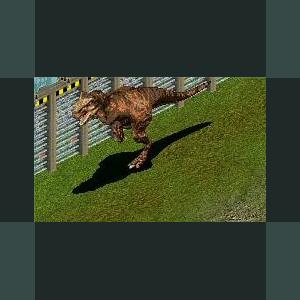About This File
Like most known tyrannosaurids, Gorgosaurus was a multi-ton bipedal predator equipped with dozens of large, sharp teeth; it also bore tiny two-fingered forelimbs typical of its close relatives. Although relatively large for a theropod, Gorgosaurus was much smaller than its more famous relative Tyrannosaurus.
Gorgosaurus (pronounced GOR-go-SAWR-us; meaning "fierce lizard") is a genus of tyrannosaurid theropod dinosaur that lived in western North America during the Late Cretaceous Period, between about 77 and 74 million years ago. Fossil remains have been found in the Canadian province of Alberta and possibly the U.S. state of Montana. Paleontologists recognize only the type species, G. libratus, although other species have been erroneously referred to the genus.
Like most known tyrannosaurids, Gorgosaurus was a bipedal predator weighing more than a metric ton as an adult; dozens of large, sharp teeth lined its jaws, while its two-fingered forelimbs were comparatively small. Gorgosaurus was most closely related to Albertosaurus, and more distantly related to the larger Tyrannosaurus. Gorgosaurus and Albertosaurus are extremely similar, distinguished mainly by subtle differences in the teeth and skull bones. Some experts consider G. libratus to be a species of Albertosaurus; this would make Gorgosaurus a junior synonym of that genus.
Gorgosaurus lived in a lush floodplain environment along the edge of an inland sea. An apex predator, it was at the top of the food chain, preying upon abundant ceratopsids and hadrosaurs. In some areas, Gorgosaurus coexisted with another tyrannosaurid, Daspletosaurus. Though these animals were roughly the same size, there is some evidence of niche differentiation between the two. Gorgosaurus is the best-represented tyrannosaurid in the fossil record, known from dozens of specimens. These plentiful remains have allowed scientists to investigate its ontogeny, life history and other aspects of its biology.



Recommended Comments
There are no comments to display.
Create an account or sign in to comment
You need to be a member in order to leave a comment
Create an account
Sign up for a new account in our community. It's easy!
Register a new accountSign in
Already have an account? Sign in here.
Sign In Now